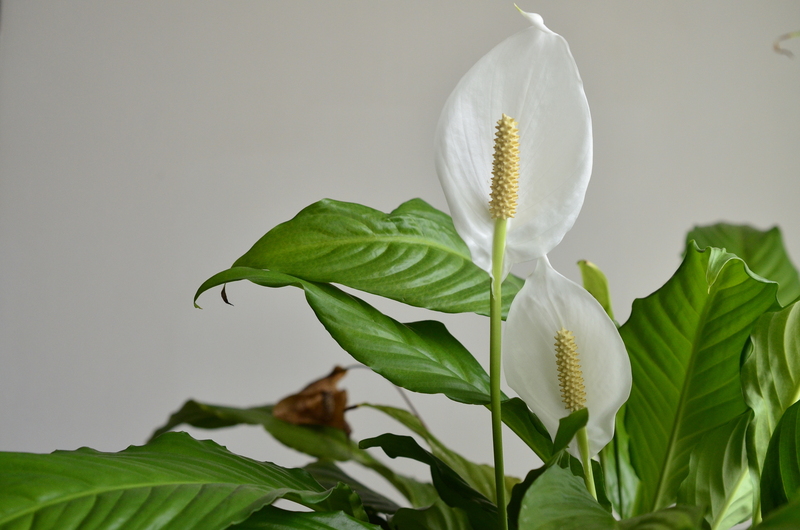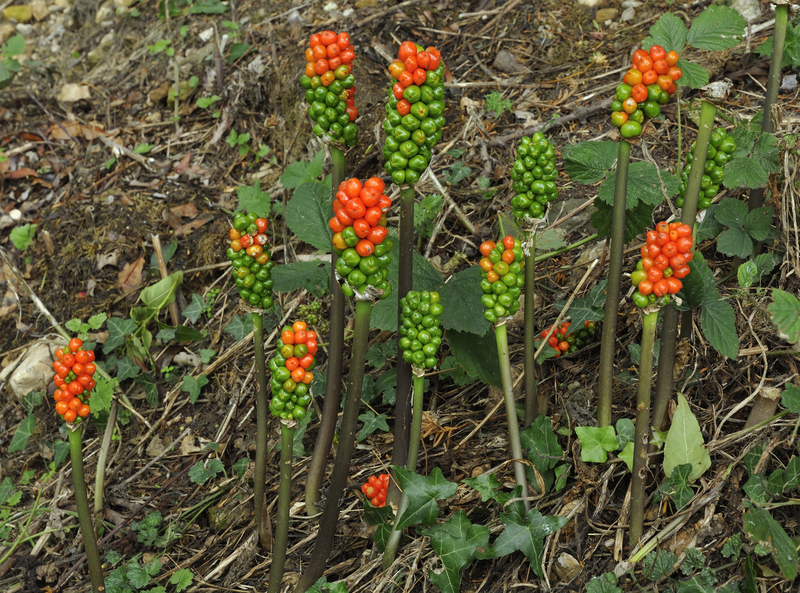3 Strategic Tips to Keep Your Garden Weed-Free
Posted on 01/06/2025
3 Strategic Tips to Keep Your Garden Weed-Free
A weed-free garden is every gardener's dream. Not only do weeds compete with your cherished plants for nutrients, water, and sunlight, but they can also harbor pests and diseases. If you're tired of spending precious time pulling weeds instead of enjoying your beautiful garden, you're in the right place! In this comprehensive guide, discover three strategic tips to keep your garden weed-free all season long. From proactive soil preparation to smart use of mulches and effective weeding techniques, these practical methods will empower you to combat unwanted intruders and cultivate a thriving, healthy, and weed-free garden.
Understanding Weeds: Why Prevention is Key
Before diving into weed management strategies, it's essential to recognize why weeds are so persistent. Weeds are nature's survivors. They spread quickly via seeds, roots, or runners and thrive in disturbed or bare soil. Many common garden weeds can lay dormant for years until the ideal conditions emerge. That's why keeping your garden weed-free begins with smart, strategic prevention.

Tip 1: Start with Superior Soil Preparation
Soil Health and Weed-Free Landscaping
The foundation of a successful weed management plan is healthy, well-prepared soil. If the soil is packed with dormant weed seeds or is of poor quality, your plants will struggle while weeds will flourish. Proper soil preparation minimizes this risk, making future weeding much easier.
-
Clear Out Existing Weeds Thoroughly
Begin by removing all visible weeds, including their roots. Dig deep to ensure perennial weeds like dandelions and bindweed are fully removed. Leaving even a small root fragment can allow weeds to regenerate. -
Use the Solarization Technique
For persistent weed problems, try soil solarization. This simple, chemical-free method involves placing a clear plastic sheet over moist soil for 4-6 weeks during hot weather. The trapped heat kills weed seeds, pathogens, and many soil pests before planting begins. -
Amend Soil for Better Drainage & Texture
Healthy, enriched soil supports vigorous plants that can outcompete invading weeds. Add organic matter such as compost, aged manure, or leaf mold to boost fertility and improve structure. This enhances root health and gives your selected plants an edge over weeds.
Cover Crop for Weed Suppression
In areas you leave fallow, consider planting a cover crop. Fast-growing plants like clover, rye, or buckwheat create a living mulch that chokes out weeds, improves soil quality, and fixes nutrients for future crops. This sustainable method is a favorite among savvy organic gardeners.
Tip 2: Master the Art of Mulching
How Mulch Keeps Your Garden Weed-Free
One of the most effective weed prevention tactics is the regular use of mulch. Mulching not only blocks sunlight to weed seeds below but also helps retain soil moisture, reduce temperature swings, and slowly add nutrients as it decomposes. Here are top mulching methods to keep your garden weed-free:
-
Organic Mulches
Shredded bark, straw, leaves, grass clippings, and compost are excellent for most garden beds. Apply a thick, even layer (2-4 inches) around your plants, being careful not to pile it against stems or trunks which can cause rot. Organic mulch feeds soil microbes and enhances structure over time. -
Inorganic Mulches
For walkways and foundation plantings, try inorganic options like gravel, pebbles, or landscape fabric topped with decorative stone. While they don't improve soil fertility, they are long-lasting and provide an effective physical barrier against weed growth. -
Smother Weeds with Newspaper or Cardboard
Recycle newspaper or cardboard by laying it in thick sheets under organic mulch. This extra layer further stifles weed germination and breaks down into the soil over time. Wetting the material before application helps keep it in place.
Mulching Best Practices for Weed Suppression
To maximize success, remember:
- Replenish mulch annually as it decomposes or blows away.
- Mulch immediately after planting to block new weed seeds from accessing sunlight.
- Pull weeds before mulching for best results.
With a smart mulching routine, you'll find keeping your garden weed-free becomes far less labor-intensive over time.
Tip 3: Develop an Ongoing Weed Management Routine
Consistent, Proactive Weeding
No matter how well you prepare, some weeds will inevitably try to sneak through. Staying vigilant is the secret to a truly weed-free garden. Create a regular maintenance routine that makes weeds easy to manage with minimal effort:
-
Weed Early and Often
Newly sprouted weeds are much easier to pull than established ones with deep roots. Set aside time each week to inspect your beds and remove anything suspicious by the root. -
Weed After Rain or Watering
Moist soil makes weed pulling a breeze--roots slide out more easily and with less disturbance to your plants. -
Use the Right Tools
For surface weeds, a sharp hoe or hand fork quickly cuts off annual weeds just below the soil line. For taprooted or perennial weeds, a dandelion fork or weeding knife allows for targeted, deep-root extraction. -
Dispose of Weeds Properly
Don't add seed-laden weeds to your compost pile unless it gets hot enough to kill seeds (over 140?F/60?C). Otherwise, bag and discard--or burn, if allowed.
Plant Densely to Crowd Out Weeds
Another savvy tactic is to design your garden layouts so plants fill in the available space. Dense spacing blocks sunlight from reaching weed seeds, naturally minimizing future weeding chores. Use ground covers, sprawling perennials, low-growing annuals, or fast-spreading vegetables to form a living green carpet.
Pro gardening tip: Try companion planting--certain species, like marigolds or nasturtiums, can be interplanted to deter weed growth while repelling pests or attracting beneficial insects.
Bonus Strategies for a Weed-Free Garden All Year
- Edge Your Beds: Barriers such as metal, plastic, or brick edging prevent creeping lawn and weed roots from invading your well-tended garden spaces.
- Water Smartly: Targeted soaker hoses or drip irrigation deliver moisture only to your desired plants, starving weeds in the aisles and walkways.
- Stay Clean: Clean your garden tools regularly to avoid spreading weed seeds from one bed to another.
- Monitor Compost: Hot composting destroys most weed seeds, but add only seed-free material to cold compost piles.

Frequently Asked Questions about Keeping Gardens Weed-Free
Are homemade weed killers safe for your garden?
Natural solutions like vinegar sprays or boiling water can kill young weeds but may harm your desired plants and soil life if not used carefully. Always use spot treatments and consider manual removal as a safer choice for maintaining a thriving, weed-free landscape.
How do you prevent weeds from coming back?
Consistent mulch coverage, dense planting, garden edging, and routine inspections are your best defenses. Remember: prevention, not just removal, is the key to a weed-free garden year after year!
What's the fastest way to remove weeds?
Young, shallow-rooted weeds can quickly be hoed off at the surface or pulled by hand after rain. For perennial weeds, use specialized hand tools to remove roots completely--don't just snap off tops or they'll regrow.
Conclusion: Enjoy a Thriving, Weed-Free Garden (and More Time to Relax!)
Maintaining a weed-free garden doesn't require back-breaking labor or harmful chemicals. With the three strategic tips outlined above--superior soil preparation, regular mulching, and proactive weeding routines--you can save time while nurturing a healthy, beautiful outdoor space. Combine these strategies with smart garden design and a vigilant routine for a lush, bountiful, and virtually weedless garden.
Don't let weeds rob your plants of sunlight and nutrients this season! Transform your garden with these proven, sustainable methods and enjoy more of what you love--gardening, harvesting, and relaxing in your weed-free oasis.
Happy gardening! For more tips on weed prevention and landscape health, stay tuned for our future articles on organic gardening techniques, pest management, and soil care.
Latest Posts
Storm-Ready Gardens: Ensuring Safety Through Smart Preparations
Cultivate Flavor with a Personal Herb Farm
Best Practices for Keeping Garden Plants Safe in Winter

